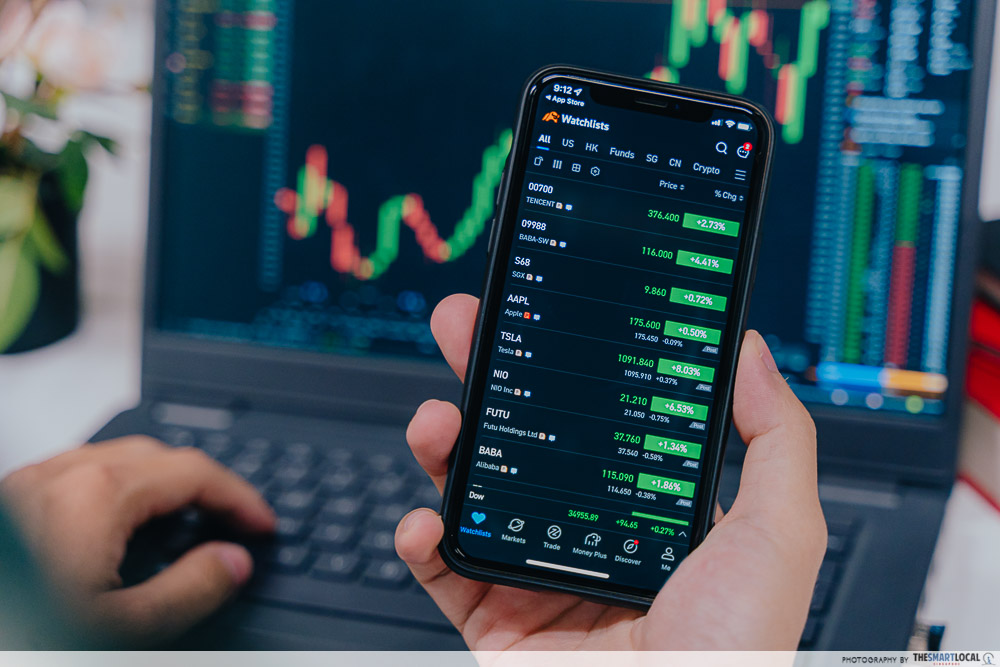Investment red flags
Most of us like to think ourselves savvy with money. Ongoing scams are no match for our vigilance, where we know better than to hand over OTPs to strangers or click on links in SMSes supposedly from banks.
But when it comes to investments, we may likely be blinded by the possibility of turning into millionaires overnight. After all, red flags can look like normal flags when viewed through rose-tinted glasses. From guarantees of high returns to wealth guru “secrets”, here are 6 red flags to look out for in investing:
1. Guarantees of no risk high returns

Right off the bat, anything that sounds too good to be true likely is. All investments come with a risk, which means making a loss is always a possibility. If an investment gives a guarantee of high returns, that should already send sirens off in your head.
That isn’t to say you should turn down any investment opportunity that offers a return. You should do your own research on the investment first before coming to a conclusion.
This could include checking in with other trusted financial advisors and investors on the opportunity, as well as reading up on the company’s business plans to ensure that what you’re getting involved in is legit.
2. Proven wins but no mention of losses

If you’re calling someone out, you’ll want to make sure you can back it up with receipts. It’s the same when looking at investment opportunities that promise profits.
Financial schemers will be quick to pull out figures to show the earnings they’ve received. But what you’ll want to look out for are their losses too. After all, while a profit of a few Gs looks good on paper, it isn’t so impressive when their losses are greater than their yield.
Demand transparency in profit and loss statements should you get a sales pitch that only shows a positive track record. Even if the investment sounds safe, it might not be in your best interest to work with a salesperson who chooses to cover up information like this. Who knows what else they could be shielding from you to make a sale?
3. “Secrets” that can only be unlocked with a fee

Spotting a self-proclaimed wealth guru is easy. They’ve all found the secret to attaining riches, and are willing to let you in on it. But only if you’re willing to fork over a handsome sum for their discovery.
We’ll save you the few hundred dollars you might drop and just tell the secret straight up: There is no secret. While many could be investors themselves, a good portion of their wealth likely comes from selling an investment strategy that probably exists for free on the internet.
4. Earnings are done through commissions

It isn’t uncommon for trading platforms to reward you with some starting capital to help you kickstart your first investment with them. Many of these also offer a small referral bonus when you jio friends and family to join.
And that’s completely ok! What you want to be wary of are investments that base most of your profits on recruitment. It’s also sketchy if you’re being pressured to get as many of your kith and kin to sign up in order for you to make money quickly.
Be on the lookout for promised commissions you could be earning if your own referred contacts enlist their own pals to join as well. These are all telltale signs of a pyramid scheme.
5. Pressure to invest now

You might’ve heard traders saying to “strike while the iron is hot” when the markets are favourable. But that’s the same tactic get-rich-quick schemers will use to pressure you into investing now.
Similar buzzwords they’ll throw at you include “limited time opportunity” and “limited slots available” to create a sense of urgency so you’ll cough up cash into an investment. This is usually so that you’ll be forced to make a hasty decision without first doing your due diligence.
It’s all the more reason to take the time you need to research the investment properly. Even if you lose out on a so-called golden time, here’s where you can still practise an investing strategy called dollar-cost averaging. It involves making regular deposits into your investments, rather than sinking all your eggs into one basket. You’ll at least minimise huge losses should the market dip.
6. Using unregulated trading platforms

This might seem like a no-brainer red flag but it bears repeating: Beware of investments that ask for deposits on unregulated trading platforms.
It’s a warning that doesn’t just come from fellow investors but from the Money Authority of Singapore (MAS) itself. Trading platforms first have to go through stringent checks on how investors’ monies are handled before they can be licensed. They also have to adhere to a strict code of conduct to operate in Singapore.
Unregulated platforms bypass these checks set by MAS, which means there’s no law governing how your money is used after a deposit. This could make liquidation harder, that is, an exit strategy for you to get your cash and any profits back.
Investing safely via moomoo
Now that you can spot red flags, you’ll be more adept at spotting safer investment opportunities for yourself. You can further minimise risks by trading them on a secure platform like moomoo. In Singapore, investment products and services on moomoo are offered by Moomoo Financial Singapore, which is regulated by Monetary Authority of Singapore.
Signing up is easy and only takes a few minutes for your account to be ready for trading. From here, you’ll be able to trade shares and make investments in local funds like the Singapore Straits Times Index. Plus, you’ll also get access to international markets, like stock exchanges from the U.S. and Hong Kong.

This means getting to own shares from S&P 500 companies like Netflix, Google and Apple. U.S. stock exchanges are also where major Chinese companies are also listed, so you’ll find indices like Alibaba, JD.com and Baidu available for trading as well.
moomoo also offers zero commissions forever on eligible new and existing users when trading U.S. stock, so the full profit is yours with every trade you make after settlement and platform fees.
To sweeten the deal even more, the U.S. stock platform fee will be waived for 1 year*. Plus, you’ll also be able to get 90 days of unlimited commission-free trading on the Singapore and Hong Kong markets for every friend you refer.
If you’re not sure where to start with trading U.S. stocks, moomoo even provides free real-time market data and Level 2 quotes, which include insights into how stocks are being priced in real time.
They also have more than 90 funds to start a savings plan in, where you choose to invest as often as you want – daily, weekly, fortnightly or monthly – to make use of dollar cost averaging (DCA).
And if terms like DCA have you scratching your head or you consider yourself a complete newbie to investing, learn about common investing terms and investing myths with us. Otherwise, moomoo also has courses to take you from newbie to veteran in a matter of minutes.
You can also hear and learn from investment experts at the free moomoo event How To Grow Your Wealth In A Turbulent Market.
At this event, speakers from Barclays, and finance influencers like SG Budget Babe, Kelvinlearnsinvesting, and Dr Wealth will share their insights and give inputs on tapping onto opportunities to grow your wealth during a period of market volatility.
Start investing with moomoo here
Photography by Loo Jie Ling.
This post was brought to you by Moomoo Financial Singapore Pte. Ltd (moomoo).
This advertisement has not been reviewed by the Monetary Authority of Singapore.
*T&Cs apply.
